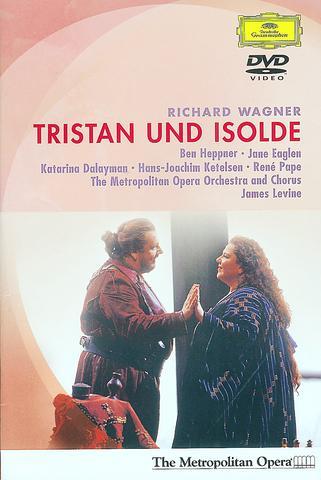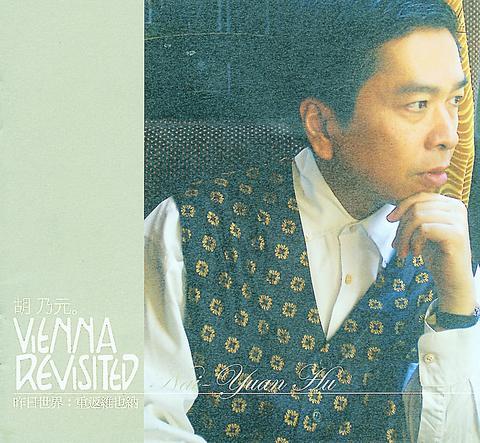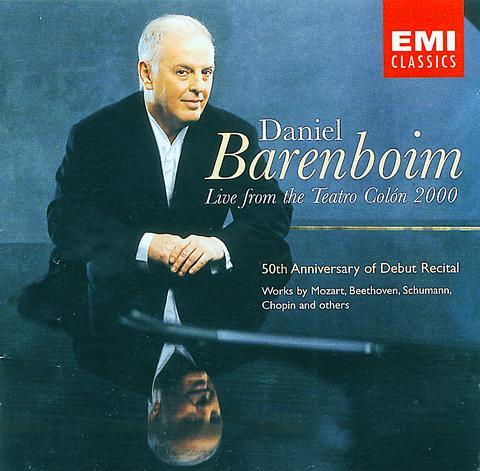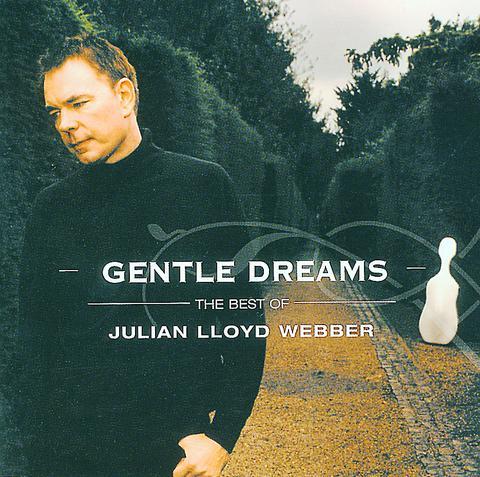I spent much of the Lunar New Year watching again the incomparable DVDs of Wagner's Ring operas from the 1976 Bayreuth production by Patrice Chereau and Pierre Boulez (Philips DVD 070 401 to 404). The feeling became irresistible that these DVDs, opening with only mixed success in Rheingold, increasingly found their imaginative world dominated by Wagner's original vision. The director's political program seemed to melt away and be taken over by the power of the music itself and of the lead singers. What was so remarkable was that all the main singers acted so imaginatively. The end result is a 14-hour experience that, at some NT$2,500, remains the best value for money currently available in Wagnerian opera on DVD. Try Gotterdammerung, the finest of the four, and you'll soon be running out to get your hands on the other three.
These, then, remain the Wagner DVDs to beat. So how does a new addition to the genre match up?

Wagner: Tristan Und Isolde

Heppner, Eaglen, Dalayman, Pape

Conductor: James Levine

Deutsche Grammophon
DVD 073 004-9
New York's Metropolitan Opera waited 15 years to stage their new Tristan, claiming a lack of soloists of sufficient stature. They finally took the plunge in 1999. (Why the five year wait for the DVD? you may well ask). The work is much less dramatic than the Ring, and this production, directed by Dieter Dorn, with sets and costumes by Jurgen Rose, tacitly recognizes this by offering a quasi-abstract timelessness as the visual counterpart to the music's yearning and implicit death-wish. Even so, it doesn't do much to help the viewer sit through the protracted introspection and emotional stalemate. It therefore throws your attention back onto the music, and the beautiful playing of the Metropolitan Opera Orchestra under James Levine is particularly finely rendered. But this production team takes no risks -- in marked contrast to Chereau -- and instead relies, like a modernist painting, on tones of gray, blue and red, plus miniature stage models and token items of scenery. It's very New York in the commercial sense, fashion-
conscious and expensive-looking. It comes over at times as more like a tasteful cosmetics advertisement than an opera.
The work's climaxes are the conclusion of Act One when the couple drink the love potion, the long love duet in Act Two, and Isolde's closing liebestod. Only the second of these (sung, unusually these days, uncut) genuinely impresses in this version. Strangely, there seems little desire to overawe by visual richness, but instead a sense that we ought to be devastated by the work itself, and not need any additional imaginative input.
Ben Heppner and Jane Eaglen are two big name soloists, though neither is physically ideal for their role. Vocally both have their moments, but these tend to be when the music's demands are relatively modest, as in the tender passage in the middle of the Act Two duet. Eaglen's liebestod, contrary to the claims made in the accompanying booklet, is relatively restrained. Neither singer consistently touches the heart. Rene Pape, as a finely sensitive King Mark, is the most pleasing member of the cast.
The Metropolitan Opera has up to now generally opted for splendid but traditional productions. This Tristan was a break with this, an attempt to adopt what was perceived as a more European manner. But Deutsche Grammophon make the mistake of including a bonus trailer for their other opera DVDs featuring Met productions -- Turandot with Eva Marton and Placido Domingo, Ariadne auf Naxos with Jessye Norman, Ballo and Trovatore with Luciano Pavarotti, and many more. Every one of them, it has to be said, looks more attractive than this Tristan. Musically impressive it may be for some, but for this reviewer it's fundamentally unlovable.
Hu Nai-Yuan, Violin
EMI 5 57714 2
Taiwanese violinist Hu Nai-yuan claims to be so captivated by Vienna that he's put together this CD of music for violin and piano associated with the city, with many of his own photos of the place in the accompanying booklet, together with a not altogether appropriate quotation on dreams from Sigmund Freud. With Claude Cymerman at the keyboard, Hu runs through a wide variety of items, many by composers few listeners will have heard of. Both musicians play with great panache, however, making this an enjoyable album of popular, accessible and tuneful music.
Daniel Barenboim 50th
Anniversary Concert Live from the Teatro Colon
2000EMI Classics 5 57416 2
Daniel Barenboim was born in Argentina, and gave his first public concert in Buenos Aires as a child prodigy at the age of seven. At 57, and by then an international celebrity, he returned to pay tribute to the land of his birth with a repeat solo performance, though with partly different music. The original recital hall no longer existed so he chose instead the grand Teatro Colon. This live recording of the concert contains a range of music from Mozart to Schumann, plus Latin American composers Resta, Ginastera and Villa-Lobos. It appears from the accompanying notes that Barenboim played all the music from memory, and even chose the items spontaneously while on stage.
Gentle Dreams
Julian Lloyd Webber, Cello
Philips 476 1296
Andrew Lloyd Webber's brother Julian is a classical cellist, and these two CDs present him playing tuneful items culled from his many recordings. In order to lure a wider audience a few numbers more evocative of smoky saloon bars than concert halls have been included at the beginning and end of each CD, including a version of Your Song with Elton John on piano.
All in all these CDs will please those who enjoy undemanding classical snippets, together with a few other items, all highly suitable for late-night background listening.

A vaccine to fight dementia? It turns out there may already be one — shots that prevent painful shingles also appear to protect aging brains. A new study found shingles vaccination cut older adults’ risk of developing dementia over the next seven years by 20 percent. The research, published Wednesday in the journal Nature, is part of growing understanding about how many factors influence brain health as we age — and what we can do about it. “It’s a very robust finding,” said lead researcher Pascal Geldsetzer of Stanford University. And “women seem to benefit more,” important as they’re at higher risk of

March 31 to April 6 On May 13, 1950, National Taiwan University Hospital otolaryngologist Su You-peng (蘇友鵬) was summoned to the director’s office. He thought someone had complained about him practicing the violin at night, but when he entered the room, he knew something was terribly wrong. He saw several burly men who appeared to be government secret agents, and three other resident doctors: internist Hsu Chiang (許強), dermatologist Hu Pao-chen (胡寶珍) and ophthalmologist Hu Hsin-lin (胡鑫麟). They were handcuffed, herded onto two jeeps and taken to the Secrecy Bureau (保密局) for questioning. Su was still in his doctor’s robes at

Last week the Democratic Progressive Party (DPP) said that the budget cuts voted for by the China-aligned parties in the legislature, are intended to force the DPP to hike electricity rates. The public would then blame it for the rate hike. It’s fairly clear that the first part of that is correct. Slashing the budget of state-run Taiwan Power Co (Taipower, 台電) is a move intended to cause discontent with the DPP when electricity rates go up. Taipower’s debt, NT$422.9 billion (US$12.78 billion), is one of the numerous permanent crises created by the nation’s construction-industrial state and the developmentalist mentality it

Experts say that the devastating earthquake in Myanmar on Friday was likely the strongest to hit the country in decades, with disaster modeling suggesting thousands could be dead. Automatic assessments from the US Geological Survey (USGS) said the shallow 7.7-magnitude quake northwest of the central Myanmar city of Sagaing triggered a red alert for shaking-related fatalities and economic losses. “High casualties and extensive damage are probable and the disaster is likely widespread,” it said, locating the epicentre near the central Myanmar city of Mandalay, home to more than a million people. Myanmar’s ruling junta said on Saturday morning that the number killed had